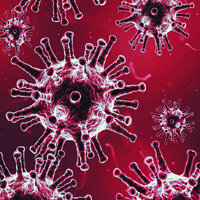The psychological impact of COVID-19 on people suffering from dysfunctional eating behaviours: a linguistic analysis of the contents shared in an online community during the lockdown

Submitted: June 23, 2021
Accepted: September 8, 2021
Published: December 20, 2021
Accepted: September 8, 2021
Abstract Views: 1911
PDF: 655
Appendix: 101
HTML: 31
Appendix: 101
HTML: 31
Publisher's note
All claims expressed in this article are solely those of the authors and do not necessarily represent those of their affiliated organizations, or those of the publisher, the editors and the reviewers. Any product that may be evaluated in this article or claim that may be made by its manufacturer is not guaranteed or endorsed by the publisher.
All claims expressed in this article are solely those of the authors and do not necessarily represent those of their affiliated organizations, or those of the publisher, the editors and the reviewers. Any product that may be evaluated in this article or claim that may be made by its manufacturer is not guaranteed or endorsed by the publisher.
Similar Articles
- Ante Silić, Jakša Vukojević, Ilaria Čulo, Hrvoje Falak, Hikikomori silent epidemic: a case study , Research in Psychotherapy: Psychopathology, Process and Outcome: Vol. 22 No. 2 (2019)
- Dante Gabriel Duero, Francisco Javier Osorio Villegas, Phenomenological-narrative contributions to understand the narrative strategies that shape the autobiographical account throughout different moments of the therapeutic process , Research in Psychotherapy: Psychopathology, Process and Outcome: Vol. 21 No. 2 (2018)
- Javier Morán, M. Francisca Díaz, Claudio Martínez, Carlos Varas, Roxana Parra Sepúlveda, The subjective experience of psychotherapists during moments of rupture in psychotherapy with adolescents , Research in Psychotherapy: Psychopathology, Process and Outcome: Vol. 22 No. 1 (2019)
- Santo Di Nuovo, What research for what training in psychotherapy? Some methodological issues and a proposal , Research in Psychotherapy: Psychopathology, Process and Outcome: Vol. 22 No. 3 (2019)
- Francesca Giannone, Cinzia Guarnaccia, Salvatore Gullo, Maria Di Blasi, Cecilia Giordano, Gianluca Lo Coco, Gary Burlingame, Italian adaptation of the Group Questionnaire: validity and factorial structure , Research in Psychotherapy: Psychopathology, Process and Outcome: Vol. 23 No. 2 (2020)
- Alessandro Gennaro, Johann Roland Kleinbub, Stefania Mannarini, Sergio Salvatore, Arianna Palmieri, Training in psychotherapy: a call for embodied and psychophysiological approaches , Research in Psychotherapy: Psychopathology, Process and Outcome: Vol. 22 No. 3 (2019)
- Marco Solmi, Mara Campeol, Federica Gentili, Angela Favaro, Carla Cremonese, Clinical presentation and need for treatment of a cohort of subjects accessing to a mental illness prevention service , Research in Psychotherapy: Psychopathology, Process and Outcome: Vol. 23 No. 1 (2020)
- Raffaele Popolo, Angus MacBeth, Stefano Brunello, Flaviano Canfora, Ercan Ozdemir, Daniela Rebecchi, Cecilia Toselli, Gloria Venturelli, Giampaolo Salvatore, Giancarlo Dimaggio, Metacognitive interpersonal therapy in group: a feasibility study , Research in Psychotherapy: Psychopathology, Process and Outcome: Vol. 21 No. 3 (2018)
- Shana Cornelis, Mattias Desmet, Reitske Meganck, Kimberly Van Nieuwenhove, Jochem Willemsen, Extending Blatt’s two-polarity model of personality development to dissociative identity disorder: a theory-building case study , Research in Psychotherapy: Psychopathology, Process and Outcome: Vol. 24 No. 1 (2021)
- Ana Catarina Nunes da Silva, António Branco Vasco, Jeanne C. Watson, Alexithymia and therapeutic alliance: a multiple case study comparing good and poor outcome cases , Research in Psychotherapy: Psychopathology, Process and Outcome: Vol. 21 No. 2 (2018)
<< < 19 20 21 22 23 24 25 26 > >>
You may also start an advanced similarity search for this article.

 https://doi.org/10.4081/ripppo.2021.557
https://doi.org/10.4081/ripppo.2021.557





